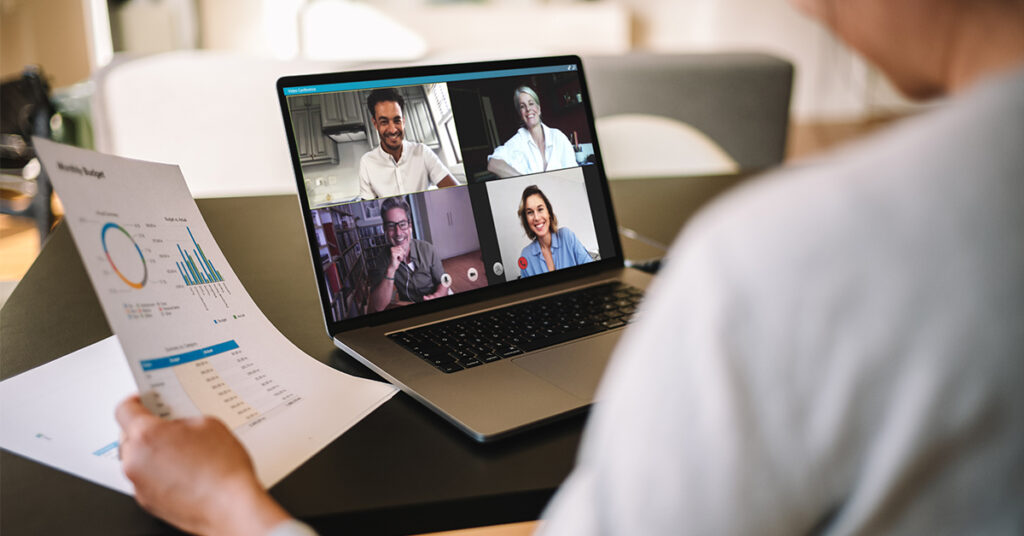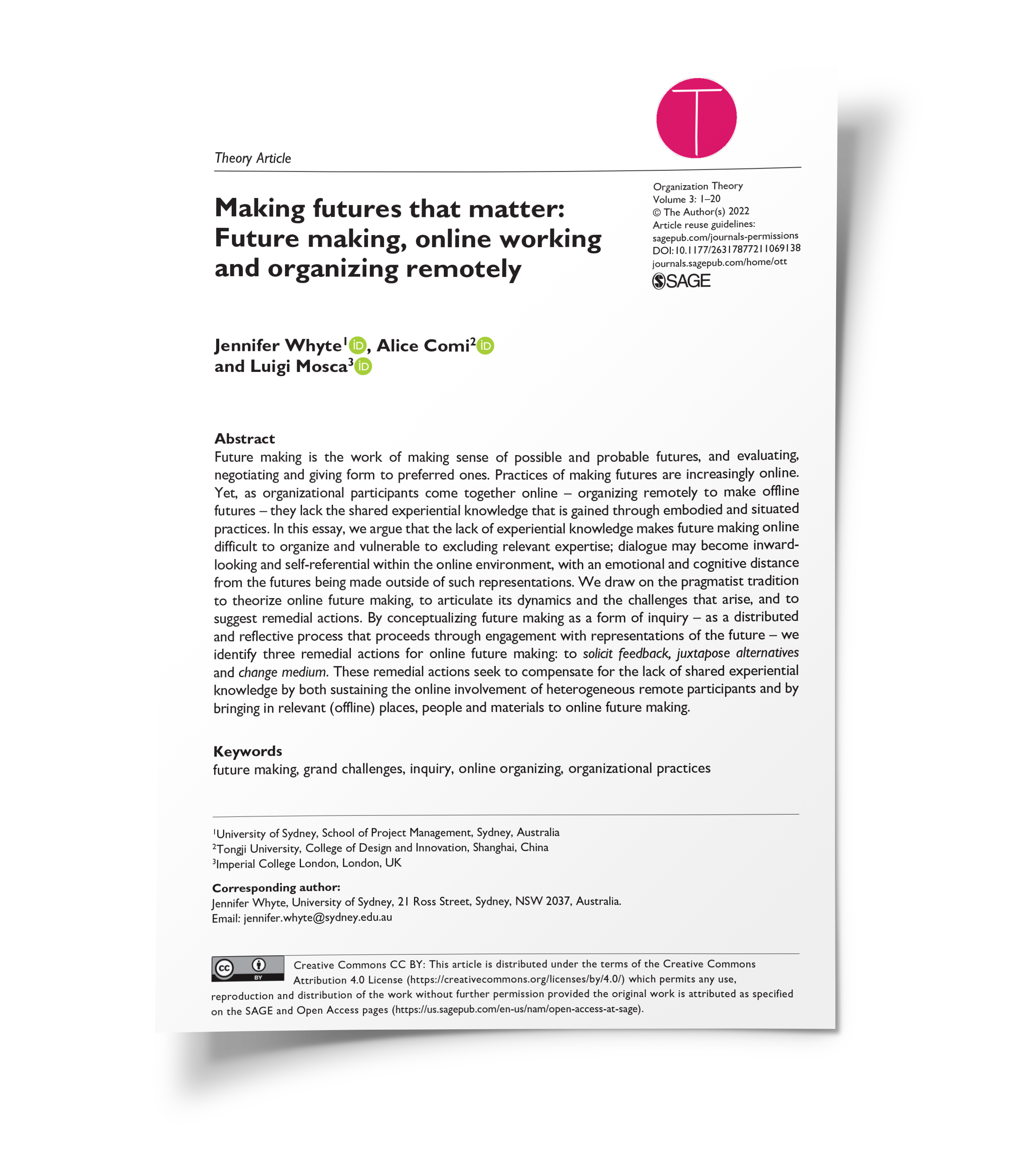Making futures that matter? Three things managers can do to make better futures, when working online
Jennifer Whyte, Alice Comi, Luigi Mosca

As video conferencing becomes more central to work in organisations, managers and their teams need to improve the quality of discussions to make futures. We define future making as the work of making sense of possible and probable futures, and evaluating, negotiating and giving form to preferred ones. In our study published in Organization Theory (available here), we draw on the pragmatist tradition to articulate the dynamics and challenges of online future making and to suggest remedial actions.
In online environment, managers and their teams lack of the shared experiential knowledge that is central to offline future making. Therefore, dialogue may become inward-looking and self-referential within the online environment, with an emotional and cognitive distance from the futures being made far from the offline representations.
We suggest three remedial actions to compensate for the lack of shared experiential knowledge by both sustaining the online involvement of heterogeneous remote participants and by bringing in relevant (offline) places, people and materials to online future making.
1. Be attentive to what’s missing and ask for feedback:
The first remedial action suggested is labelled as ‘soliciting feedback’. The people, places and things relevant to futures can go missing from (or not be invited into) online conversations, so managers need to very explicitly think about what feedback they need as they build futures. Managers in the online meeting can ask questions that call participants into the online dialogue to bring their experience and feedback to bear on the future in development.
2. Consider multiple alternatives:
Our second remedial action is ‘juxtaposing alternatives’. As an online conversation can quickly focus in one possible future and not take the time to consider alternatives, managers need to consider different options very explicitly. By comparing and contrasting multiple alternatives, managers might help the team overcome a lack of shared experiential knowledge to imaginatively work across an interrelated set of organizational concerns.
3. Use more than one representation:
In our study we call the third remedial action: ‘changing medium’. All representations of the future are partial, so changing between different representations of the future is necessary to understand more about it. We therefore suggest to managers and their teams to adopt different media, for example from online documents to paper copies, or across software formats and packages, to draw attention toward previously unconsidered organizational features and issues.
The three remedial actions that we identify compensate for the lack of shared experiential knowledge experienced by managers and their teams in online meetings. Without the three remedial actions that we identify, futures can be decided too quickly, without engaging relevant stakeholders, considering alternatives or understanding how the ideas can be translated for use outside of the computer.
We also suggest that such remedial actions are important to address ‘grand challenges’ and offer resilient organizational responses to the futures that societies now face, such as the concerns about climate change, loss of biodiversity, pandemics and fires. To know more about our research and the theoretical implications of the three identified remedial actions, please read our Organization Theory article:



Leave a Reply